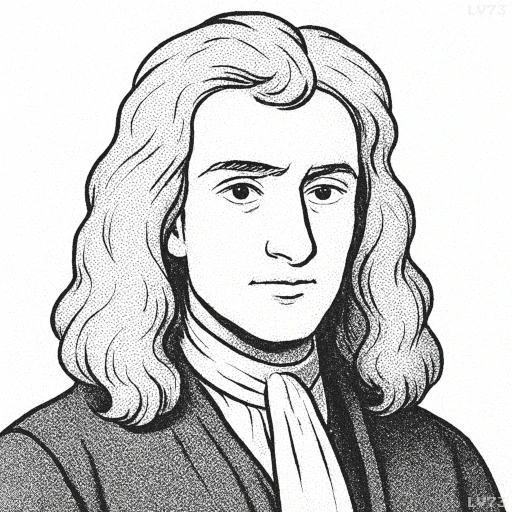“Religion and philosophy are to be preserved distinct. We are not to introduce divine revelations into philosophy, nor philosophical opinions into religion.”

- January 4, 1643 – March 31, 1727
- Born in England (UK)
- Natural philosopher, mathematician, physicist, astronomer, theologian
table of contents
Quote
“Religion and philosophy are to be preserved distinct. We are not to introduce divine revelations into philosophy, nor philosophical opinions into religion.”
Explanation
In this quote, Isaac Newton advocates for a clear separation between religion and philosophy (or reason). Newton argues that divine revelations, which come from religious faith and scripture, should not be mixed with philosophical reasoning, which is grounded in human intellect and empirical observation. Similarly, philosophical views and speculative opinions should not be introduced into religion, as this could distort or undermine the spiritual truths conveyed through divine revelation. Newton’s position reflects his belief in the importance of keeping faith and reason in their respective domains, recognizing the value of both but maintaining their independence from each other.
Newton’s philosophy was deeply influenced by his Christian faith and his commitment to scientific inquiry, but he was also cautious about blending the two realms. He believed that science (or philosophy, as it was often called at the time) should focus on empirical evidence and logical reasoning, while religion should remain focused on the spiritual truths revealed through scripture and divine inspiration. For Newton, both science and faith were important, but they served different purposes. Science, he believed, revealed the workings of the natural world, while religion provided guidance on the moral and spiritual aspects of human life. This idea of maintaining the distinction between the two reflects the broader intellectual environment of the Enlightenment, when many thinkers began to advocate for a separation of religious doctrine and rational thought.
In modern times, Newton’s view on the relationship between religion and philosophy continues to resonate, particularly in discussions about the role of faith and reason in contemporary society. The idea of keeping religion and philosophy distinct remains a key aspect of modern secularism, which seeks to maintain a separation between church and state while allowing both science and spirituality to flourish within their respective domains. At the same time, many people today still debate how science and religion can coexist, with some seeing them as complementary and others as mutually exclusive. Newton’s statement serves as a reminder that, for him, the two were separate but equally valuable ways of understanding the world and human existence.
Would you like to share your impressions or related stories about this quote in the comments section?



